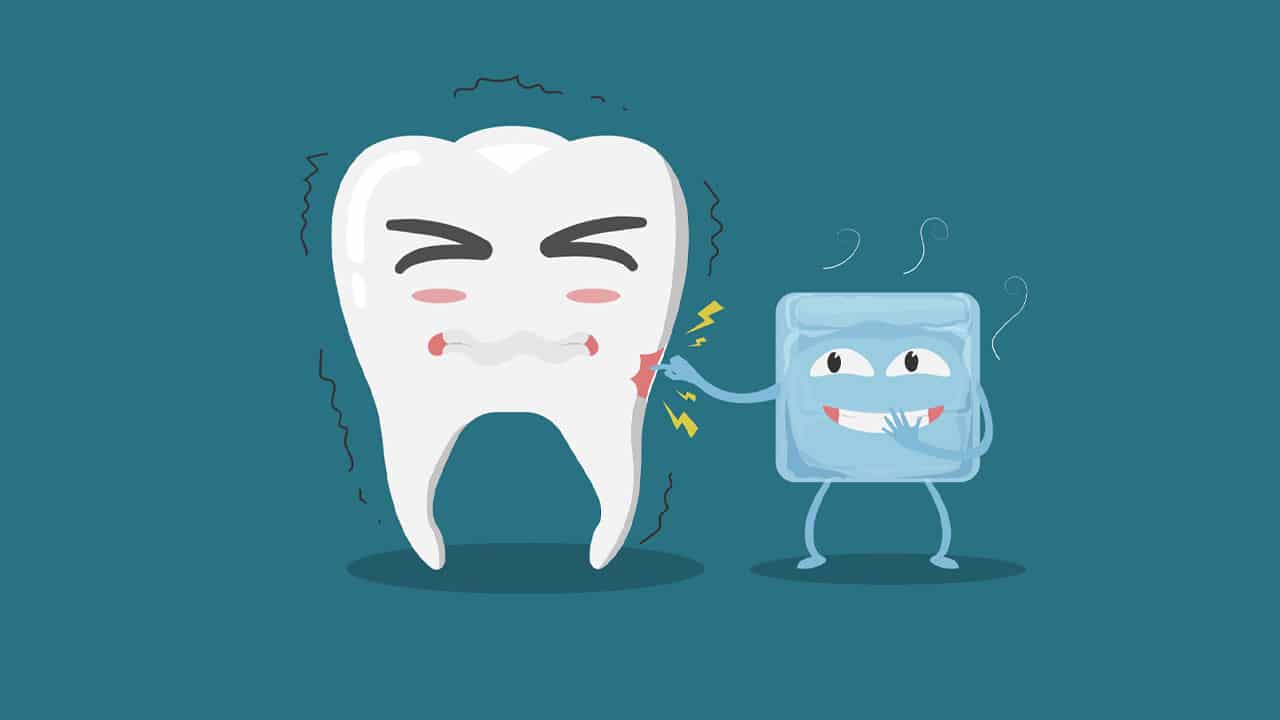
Having sensitive teeth is painful, irritating, and uncomfortable. It can also indicate a more severe problem, so the sooner you seek help from your dentist, the better. Take a look at some of the common causes and treatments for this oral affliction.
The Symptoms of Sensitive Teeth
The term “sensitive teeth” refers to pain or discomfort that is triggered by specific items or sensations such as:
- Hot or cold food and drink
- Sweet or acidic food and drink
- Cold water when brushing
- Cold air
- Mouth rinses containing alcohol
- Brushing and flossing teeth
What Causes Sensitive Teeth?
There are various potential causes for sensitive teeth ranging from minor oral care issues to serious dental problems. Unfortunately, you can’t diagnose the cause of your tooth sensitivity yourself; however, your dentist can help determine the cause and treat it effectively.
Some of the most common causes for tooth sensitivity are likely part of your daily life.
High consumption of acidic foods
Acidic food and beverages, such as citrus fruits, wear down the tooth’s surface, known as tooth enamel. The tooth enamel protects the sensitive inner layers of the tooth, the dentin, and pulp, where you can find your nerves and nerve endings.
As your tooth enamel deteriorates, it exposes the dentin, leading to sensitivity when your teeth come into contact with triggers such as high or low temperatures.
Forceful tooth brushing
Just as acidic food promotes tooth enamel deterioration, so does brushing your teeth too hard. It’s essential to brush and floss your teeth thoroughly, but being too rough can lead to further problems. If you have questions about the best way to brush your teeth, consult your dentist.
Bruxism and sleep bruxism
Another name for these common conditions is teeth grinding. Bruxism occurs while you are awake, while the latter happens while you’re sleeping. Tooth sensitivity is a side effect of both conditions as they wear away the tooth enamel. Sleep bruxism is particularly destructive as people clench their jaw with more force while unconscious (up to 250 pounds).
Gum disease
If you don’t clean your teeth properly, plaque will build up and cause inflammation of the gums and, potentially, infection. Eventually, this gum disease causes the gums to recede, exposing the nerve endings at the root and leading to sensitivity.
Tooth decay
Another result of improper dental hygiene is cavities. Like gum disease, untreated cavities can expose the root’s nerve endings.
Treatments for Sensitive Teeth
To prescribe the best treatment for tooth sensitivity and relieve your pain, it is necessary to identify the cause. Treatments include:
- Fluoride treatments such as fluoride paste, gel, or rinse
- Dietary changes
- Fillings to cover exposed roots
- Resin sealants to cover exposed dentin
- NTI or mouthguards for teeth grinding
- Improving brushing habits
- Desensitizing pastes prescribed by the dentist
- Root canals
In extreme examples of receding gums, a gum graft can help reduce sensitivity.
Face the Problem Head On
The causes of sensitive teeth can range from dietary habits to receding gums. Since the treatment for this common affliction depends on the cause, it’s crucial to visit your dentist as soon as you notice symptoms. The quicker you tackle the problem, the sooner you can alleviate your discomfort.
If you experience any tooth sensitivity, call Caputo Dentistry to schedule a consultation with our experienced team.